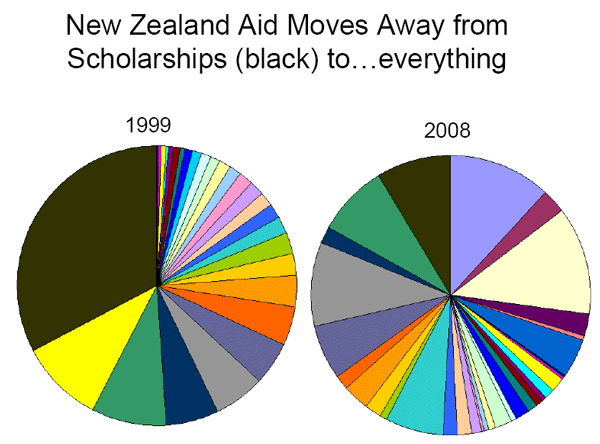 Democracy doesn’t attract as much love as it deserves in aid and development circles.
Many wonder if benevolent autocrats might be better for development than messy elections, even though there is no evidence to support benevolent autocracy. There is a strong positive association between democracy and LEVEL of per capita income, which at least some authors argue is causal. (It’s true there is no robust association between democracy and GROWTH of income, but then there is no robust association between GROWTH and ANYTHING.) But even if there had been SOME material payoff to autocracy, why don’t we care more about democracy as a good thing in itself?
Democracy doesn’t attract as much love as it deserves in aid and development circles.
Many wonder if benevolent autocrats might be better for development than messy elections, even though there is no evidence to support benevolent autocracy. There is a strong positive association between democracy and LEVEL of per capita income, which at least some authors argue is causal. (It’s true there is no robust association between democracy and GROWTH of income, but then there is no robust association between GROWTH and ANYTHING.) But even if there had been SOME material payoff to autocracy, why don’t we care more about democracy as a good thing in itself?
Many just can’t get that excited about majority voting. But the MECHANICS of democracy (majority voting among many others) are not the essence of democracy, which is about VALUES. The latter we care a lot more about than the former. The donors who try to promote democracy are unfortunately obsessive about the mechanics and silent on the values.
Lincoln’s Birthday was February 12, so this is a good excuse to use the Emancipator to clear things up:
As I would not be a slave, so I would not be a master. This expresses my idea of democracy. Whatever differs from this, to the extent of the difference, is no democracy.
The brilliance of this definition is how it also includes equality. No group is so second-class that we can deprive them of their rights without opening the door to deprivation of our own rights. Slavery is an extreme that can be generalized to all forms of oppression by arbitrary self-appointed authorities, which then leads to guaranteeing all individual rights.
I think I care about slavery -- and my risk of being enslaved -- a lot more than I care about whether elections are winner-take-all or proportional representation.
These soaring ideals had very practical consequences. The brilliant work of economic historian Joel Mokyr links the Industrial Revolution to changes in ideas and ideologies. Putting my own spin on Mokyr, the idea of individual freedom from arbitrary authority transformed many fields besides politics, opening them up to many more independent participants:
•Scientific democracy: ANYONE, no matter how junior, can overturn wisdom of anyone, no matter how senior, using scientific method.
•Technological democracy: ANYONE, any junior innovator, can overturn incumbent elites with something new that just “works.”
•Social democracy: ANYONE can be a social reformer, as long as they persuade their fellow ANYONES of a social evil.
So the freedom of the individual as a VALUE was far more consequential than any specific MECHANICS on how this idea was implemented -- like the endless obsession with electoral rules.
Drawing on Aid Watch’s endless and increasingly farfetched supply of metaphors, here’s another timely example of mechanics vs. values:
mechanics:
The hypothalamus transmits chemicals to the pituitary gland, which releases hormones into the bloodstream, creating a rapid heartbeat and lightness in the head.
value that corresponds to these mechanics:
Love
Perhaps some Valentine’s Day Development Bureaucracy worked on the mechanics, say a Hypothalamus Transmission Stimulation Program, featuring “results indicators” like heartbeat speed. But I think most Valentine’s Day celebrations stressed the value rather than the mechanics.
 The Wall Street Journal yesterday had an article on "2010: worst movie year ever?". Movie critics have a way with words that leaves us aid critics in the dust.
The Wall Street Journal yesterday had an article on "2010: worst movie year ever?". Movie critics have a way with words that leaves us aid critics in the dust.
 From Aid to Equality
From Aid to Equality





